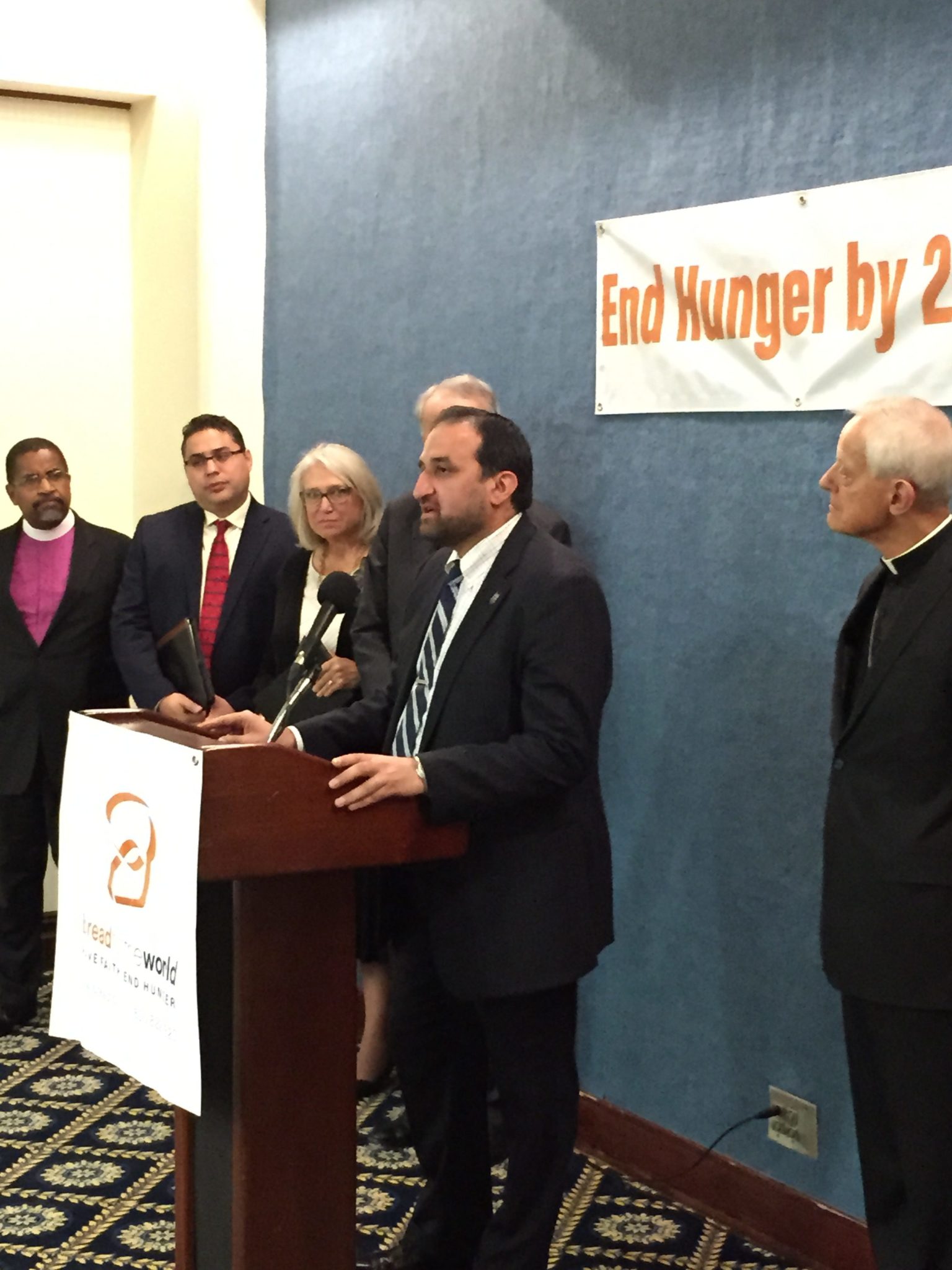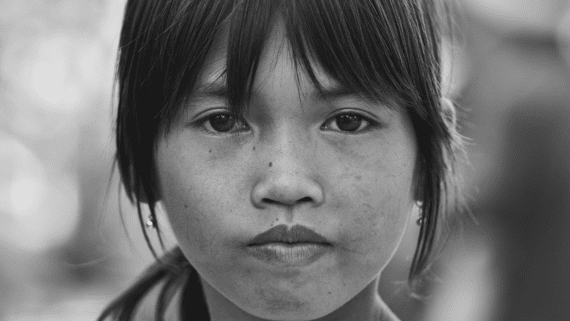By Jennifer Gonzalez
Ahead of Pope Francis’ arrival in Washington, D.C., today, an interfaith collection of religious leaders issued a call this morning for a fundamental shift in the nation’s priorities – namely to end hunger and poverty by 2030.
Those who spoke were united in the belief that ending hunger and poverty by 2030 was an achievable goal in our lifetime. The faith leaders gathered at the National Press Club for a press conference to amplify their call through the media.
There is definitely work to be done. Recent data released by the U.S. Census Bureau shows that roughly 15 percent of Americans live in poverty and that more than 15 million children, 1 in 5, live at risk of hunger.
Rev. Dr. Sharon E. Watkins, general minister and president of the Christian Church (Disciples of Christ), spoke passionately about the integral role government can play in ending hunger and poverty by 2030.
“Since 2011, powerful political forces have pushed for deep and disproportionate cuts in all the programs that go mainly to people in poverty,” she said. “Starting this fall, Congress needs to steer away from brinkmanship and put an end to the sequester. We will make it clear that we want a president and a Congress by 2017 who will work together, who reflects God’s special concern for hungry and poor people – our neighbors around the world.”
“Today, we turn our effort to end hunger in our time,” she added.
Others who spoke represented various faith-based organizations, including American Jewish World Service, Christian Methodist Episcopal Church, Islamic Relief, National Latino Evangelical Coalition, and the Salvation Army.
For its part, the Salvation Army is launching an initiative to reduce “intergenerational poverty across the United States by transforming the lives of 100,000 families by 2030.”
Commissioner David Jeffrey, national commander of The Salvation Army in the United States, said that last year his organization served roughly 30 million people by providing meals, shelter, and other services.
“Serving such vast numbers of people, we are keenly aware of the trials that our clients face,” he said. “We also know that their struggles will persist if we keep treating the recurring symptoms of the problem and not the source. That is why we are expanding our focus from serving to solving.”
On Monday night, a larger interfaith group – approximately 100 religious leaders – participated in a summit and wrestled with how to end hunger and poverty by 2030. Over dinner, they conversed with each other and spoke about obstacles but also success stories in solving hunger and poverty.
They also signed a pledge committing themselves to push national leaders to focus on ending hunger and poverty in the United States and around the world.
The pledge reads in part: “U.S. faith communities are deeply engaged with many sisters and brothers who struggle with hunger and poverty, and we have become increasingly active in urging our nation’s elected leaders to do their part – defending low-income people in the national budget debate, for example. Our experience of God’s mercy and compassion for all people moves us to engage in God’s work of overcoming hunger and human misery, and our sacred traditions include visions of the world transformed.” (Read the full pledge.)
The faith leaders will take this message back to their communities to rally support for the change in our nation’s priorities.
Many of the leaders who participated in last night’s summit and this morning’s press conference have significant roles in the pope’s visit to the U.S. One of the speakers at the press conference was Cardinal Donald Wuerl, Roman Catholic Archbishop of Washington, the archdiocese that is hosting Pope Francis on his first stop. Wuerl is expected to be among the first to greet Pope Francis upon his arrival.
Jennifer Gonzalez is the associate online editor at Bread for the World.
Photo: Anwar Khan, CEO of Islamic Relief, speaks at this morning’s press conference organized by Bread for the World. Jennifer Gonzalez/Bread for the World



